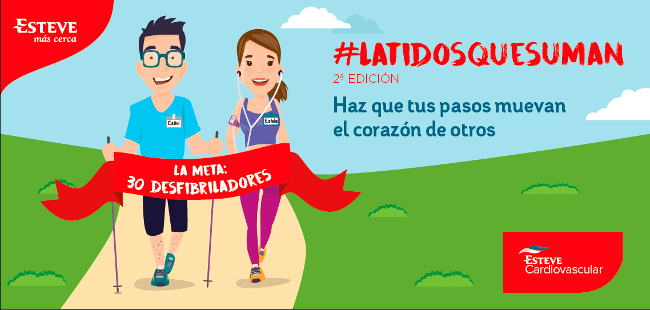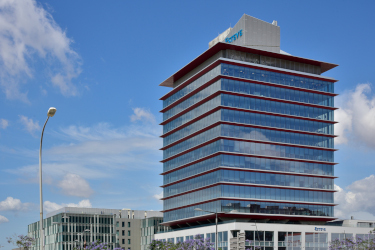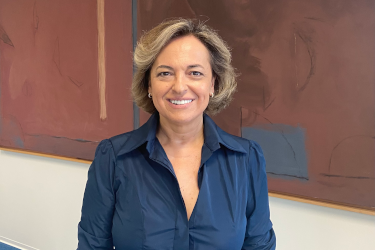26/09/2017
FOR THE SECOND YEAR RUNNING, THE EVERY HEARTBEAT COUNTS, INITIATIVE IS IN THE BLOCKS READY TO START COLLECTING EVEN MORE KILOMETERS AND INSTALLING MORE DEFIBRILLATORS
Our aim is to collect 100,000 km in 4 months and install 30 defibrillators to reduce the 40,000 sudden deaths that occur every year in Spain.
Everyone can donate the virtual kilometers that they run, walk, swim or cycle to Every Heartbeat Counts at www.latidosquesuman.com and by using any of the following applications: Google FIT, Runtastic, Fitbit, Apple Salud, RunKeeper and Dailymile.
In the first event, in which only doctors and pharmacists took part, 70,000 km and 20 defibrillators were donated, and these will soon be installed in 6 autonomous communities.

Our second virtual charity race #latidosquesuman (every heartbeat counts) is now open to anyone who wants to participate. The aim of this project, sponsored by ESTEVE in collaboration with Asociación España Salud (Spain Health), is to help save lives while encouraging healthy lifestyle habits. The goal is for everyone to get up and walk, run, swim, or cycle to the 100,000 km finish line in the next 4 months, with the prize of up to 30 new defibrillators installed throughout Spain.
The "Latidos que suman" (Every Heartbeat Counts) project wants to keep more hearts beating. "This initiative was developed in the Cardiovascular Area of ESTEVE, and reflects our strong commitment to health and quality of life. We want to help healthcare professionals to encourage their patients to take up lifestyle habits that are good for their heart, and to link this with the other facet of our challenge, which is to increase the number of public defibrillators available in Spain", explains Mireia Marimon, Head of Corporate Social Responsibility at ESTEVE. If a defibrillator is installed next to each fire extinguisher and staff have a minimum knowledge of resuscitation techniques, more than 4,500 lives could be saved every year1. Application of these devices is the most effective treatment for avoiding sudden death, otherwise known as sudden, unexpected cardiac arrest.
Yet Spain ranks lowest on the list of numbers of public access defibrillators in the EU with "around 10,000, compared to 100,000 in France, 80,000 in Germany, and 50,000 in the UK1. Only seven autonomous communities in Spain have implemented the installation of these devices in public spaces: Andalusia, Asturias, Canary Islands, Catalonia, the Basque Country, Madrid, and Castile-Leon," says Dr Josep Brugada, Chair of España Salud and one of the highest authorities on sudden death.
In the first event, in which only doctors and pharmacists were invited to take part, 70,000 virtual kilometers were donated, and 20 defibrillators are to be installed throughout the 6 autonomous communities which contributed the most kilometers: Andalusia, Asturias, Castile-Leon, Extremadura, Navarre, and the Basque Country.
How can you participate and help save lives?
You can sign up to the project and donate your kilometers in three easy steps. First, click on www.latidosquesuman.com and register. Then, complete the details and enter an easy-to-remember password. Finally, link in a device or an app that can record your activity.
If you already use Google FIT, Runtastic, Fitbit, Apple Salud, RunKeeper or Dailymile to monitor your daily activity, all you have to do is select and click on "Donate Kms" to access ≠latidosquesuman and make your donation. If not, you can download any of these apps totally free from Apple Store or Google Play, and link to this virtual charity event.
A defibrillator, the difference between life and death
Sudden death (SD) is a natural, unexpected cardiac death, characterized by loss of consciousness within one hour of developing symptoms. "In Spain, SD causes between 40,000 and 45,000 deaths annually, 18 times more than road traffic accidents. In 2015 alone, more than 70,000 patients were admitted to Spanish hospitals for an episode of sudden death".1
Coronary heart disease is responsible for 80% of all cardiac arrests1, and it can hit people of any age, even if they are apparently healthy and have no history of heart disease. Even high-performance athletes are at risk, as has been seen in the case of several football players. "It is very difficult to predict. The main difficulty is to identify high-risk patients. And it is important to remember that the odds of surviving an episode of SD fall by 10% for each minute that passes".
For all these reasons, experts insist on the need to install more defibrillators, particularly in busy areas, such as airports, train stations, shopping malls, markets, and sports facilities. "Cardiovascular risk factors such as high blood pressure, smoking, excess weight, obesity and diabetes must be controlled, but it is also crucial that more public access defibrillators are installed. For a person who is suffering from an episode of this type, one minute can mean the difference between life and death."
In 2012, the European Parliament named SD as a priority public health problem in the EU. As well as costs in terms of lives, the cost to the health system which amounts to more than 326 million a year in Spain must be taken into account1.
ESTEVE, committed to cardiovascular health
ESTEVE as a company is firmly committed to wellbeing and cardiovascular health. All of the company's workplaces in Spain are heart-healthy, and defibrillators have been installed since 2008, to safeguard the health of all employees. The company also organizes different activities, such as their "Muévete" (Move your body) campaign, aimed at encouraging employees to take up healthy habits, to promote physical activity, healthy eating, and stress management.



